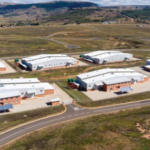The International Monetary Fund (IMF) has issued a stern warning to the government of Lesotho that its efforts to combat youth unemployment must remain strictly within existing budgetary limits to avoid inefficient and unsustainable public expenditures.
In July 2025, the government declared a national “state of disaster,” citing rapidly rising youth unemployment, economic fragility, and external risks, namely uncertainty over United States (U.S.) trade tariffs and fears that Lesotho might lose preferential access under the African Growth and Opportunity Act (AGOA).
The declaration, effective until 30 June 2027, was intended to give the government special powers to mobilise emergency resources and fast-track job creation and recovery policies under the Disaster Management Act.
Deputy Prime Minister Nthomeng Majara explained at the time that the designation would allow the state to mobilise emergency resources and fast-track interventions aimed at job creation and economic recovery.
The move responded directly to mounting pressure from youth groups, who in April had demanded the government treat the crisis as a national emergency. By then, youth unemployment was widely estimated at 39 percent, well above Lesotho’s general unemployment rate of about 30 percent.
To respond, the government later reallocated M459 million in the 2025/26 national budget throught a cabinet decision toward youth empowerment and job creation schemes.
Information Minister Nthati Moorosi said the Cabinet, meeting on 8 July 2025, approved the shift to fund programs designed to equip young Basotho with skills, generate employment, and promote entrepreneurship. The government pledged to deliver roughly 62,000 youth jobs under these schemes.
The reallocation came after Parliament had already approved the national expenditure plan for the 2025/26 financial year, raising concerns about fiscal discipline and accountability.
In its 2025 Article IV consultation report, the IMF cautioned that while responding to the youth employment crisis is morally and politically necessary, doing so must not undermine fiscal stability.
“On recurrent spending, the authorities are struggling to strike a balance between continued restraint and the need to respond to recent shocks. Importantly, the broad moratorium on new hiring remains,” the IMF said.
It emphasised that the moratorium on new hirings should continue as a break from prior years when windfalls from the Southern African Customs Union (SACU) often prompted volatile spikes in the wage bill. The IMF noted,
“The authorities have also recently announced a new focus on youth unemployment. Concrete plans are still being developed, but any new measures should be accommodated within the existing budget envelope.”
The IMF further warned against institutionalising public employment schemes as a permanent measure.
“In this context, public employment programs have a checkered history and cannot substitute for private-sector reforms,” the report states.
But it allows for temporary social support if carefully designed. The Fund stressed that such programs should be underpinned by strong coordination across agencies, time limited with clear transition plans, embedded with training and skills development, and prioritising transparency, accountability and evaluation. The IMF also underscored the risk of weak public investment capacity.
“If capacity constraints on public investment remain unaddressed, fiscal prudence requires continued surpluses into the medium term — narrowing gradually to 0.9 percent of GDP.”
While this may seem overly cautious given Lesotho’s growth needs, the IMF argues it is the most realistic fiscal path given current constraints and limited ability to scale up capital spending. Under this scenario, the focus must remain on controlling recurrent costs: maintaining the hiring freeze, streamlining the payroll, and ensuring a fair, performance-based compensation system.
The warning comes at a timely when Lesotho’s economy is under pressure. Growth is projected to slow to around 1.4 percent in FY25/26, down from 2.2 percent earlier. Inflation has eased from a peak of 8.2 percent in early 2024 to 4.4 percent in mid-2025.
The country’s dependence on SACU transfers and water-royalty revenues adds volatility: while these inflows have recently buoyed reserves and allowed fiscal surpluses, they are not a stable long‐term anchor.
Unemployment remains stubborn, with the 2025 Country Focus Report citing 30.1 percent national unemployment and a 38.9 percent rate among youth (aged 15–35). Some observers argue the true rate is well above 60 percent if informal joblessness is included.
Against this backdrop, frustrated youth voices have been calling for the government to take action. In June 2025, youth activist Tšolo Thakeli was briefly arrested after posting a video accusing Prime Minister Sam Matekane’s administration of failing to deliver on promises of job creation.
He was later charged with sedition. The case ignited protests in Maseru and raised concerns over the suppression of dissent.
Thakeli’s ordeal underscores the political sensitivity of youth unemployment, especially when economic constraints limit the government’s freedom of action.
Summary
- The International Monetary Fund (IMF) has issued a stern warning to the government of Lesotho that its efforts to combat youth unemployment must remain strictly within existing budgetary limits to avoid inefficient and unsustainable public expenditures.
- Deputy Prime Minister Nthomeng Majara explained at the time that the designation would allow the state to mobilise emergency resources and fast-track interventions aimed at job creation and economic recovery.
- It emphasised that the moratorium on new hirings should continue as a break from prior years when windfalls from the Southern African Customs Union (SACU) often prompted volatile spikes in the wage bill.

Authored by our expert team of writers and editors, with thorough research.










